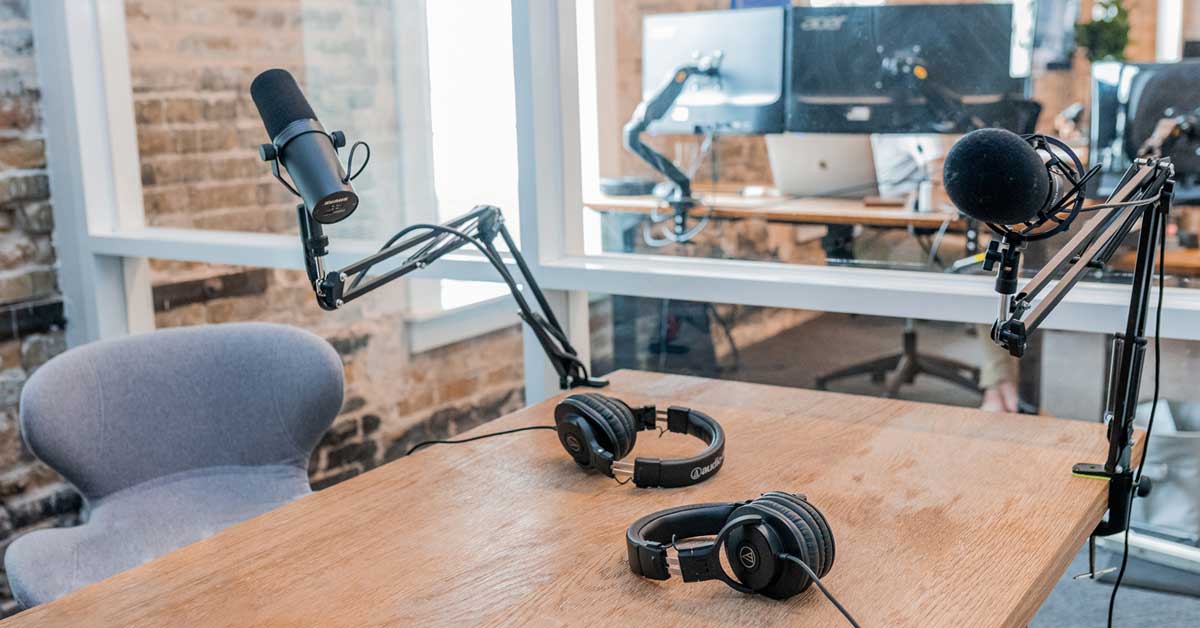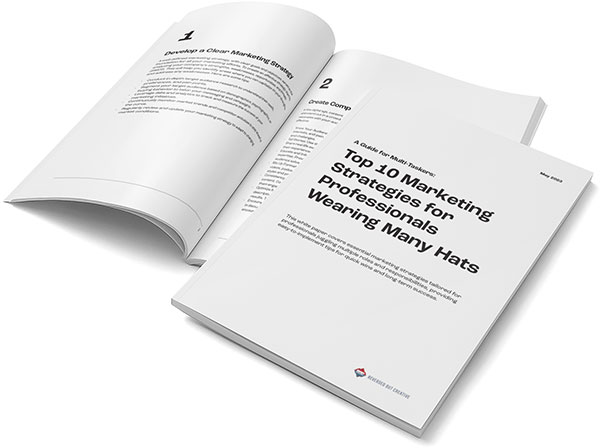
In this day and age, there is a podcast for everything. From the best ways to wash your face and make it look like you have clear skin, to how to survive in an apocalypse, they are available at the tip of your fingers. However, some people still ask the question: Is starting a podcast good for my business?
The answer is yes! Starting a podcast can help you connect with your target audience, build trust and authority within your industry, and even grow your business.
There are a lot of benefits to starting a podcast.
These benefits include:
- Podcasts can be used to build your brand. As a business owner, you have the opportunity to share your expertise in the form of valuable content with potential clients or partners.
- Podcasts can also help you establish trust with your audience. If people know that you know what you’re talking about, they will be more likely to buy from you!
- Podcasts make it easy for people who need help finding solutions for specific problems like: How do I start my own business? How do I scale my company? What are some tips for getting work done in an open office space?
You can establish yourself as a thought leader.
In the podcasting world, this is what we call “getting on the radar” of your target audience. Once you’re there, people will begin to see you as an authority figure and respect your opinion. They will also be more likely to buy from you because they trust that you know what you’re talking about (because after all, it’s hard for someone to be an expert at something if they lack credibility).
You can use it to educate your customers.
You can use your podcast to educate your customers. Provide them with useful information, help them learn about your product or service, show them how to use it, give them tips for using it, and educate them about the benefits of using your product or service. For example:
- If you’re selling a fitness tracker that helps people lose weight by tracking their activity levels and helping them set goals for exercise and diet changes, have a podcast where you interview experts in the field of health and fitness. They can share their insights on topics like working out more efficiently, or eating healthier foods in order to lose weight faster (or maintain a healthy weight).
- If you sell software development tools that are used by programmers around the world but aren’t readily available outside of Europe and America due to legal restrictions, record episodes teaching listeners how they can download these tools from other sources—or even better yet, offer an affiliate program where users who sign up through certain links on social media sites will receive free access to those programs when they buy something else from you!
You create great content for social media marketing.
You can use podcasts to create content for social media marketing. By uploading your podcast onto all applicable social media platforms, you’re not only boosting traffic to your podcast but generating leads as well. It’s a win-win! 🙂
You can use it to give updates to clients or partners.
One of the benefits of starting a podcast is that it can be used to keep clients and partners informed about the progress your business is making. A podcast can provide updates on what’s happening at your company, from shifts in strategy to new hires.
If you have a service-based business, like consulting or coaching, then this is especially useful because you can use podcasts as a way to build relationships with clients by keeping them updated on how they’re doing with their goals.
You can also use podcasts as an effective way to build a community around your brand and get people involved in the work that you do by inviting guests to the show who will share their expertise and experience with listeners.
It takes time and effort, though.
Starting a podcast can be a great way to boost your business, but you need to consider the time and effort required.
- Time-consuming: It will take planning, preparation, and recording time to get your podcast off the ground. You might also need some editing help before you publish it.
- Promotion required: Once you’re done with all that, however, don’t expect people to rush over and subscribe right away—you have more work ahead of you! You’re going to have to promote your podcast using social media accounts like Facebook or Twitter (or both), as well as through email marketing campaigns. If you want even more exposure for your show, try contacting local radio stations in your area so they can feature segments from it on airwaves across town.
There can be upfront costs, but they don’t need to be high.
- Microphone: There are a number of microphones to choose from, but some of them can be pretty expensive—if you don’t want to spend hundreds of dollars on one, there’s always the option of using a headset mic and getting good results.
- Computer: You’ll need something with enough processing power and storage space to run the software you want and record your podcast. If that means more than one computer, it’s better to use two separate ones than try to glue them together in some Frankensteinian fashion.
- Internet: This is obviously essential! If you’re going through a wireless connection via your phone or another device, ensure there’s enough coverage where you’ll be recording so that it doesn’t cut out when it starts getting busy on the network.
- Software: There are several options for audio editing software (Audacity is free), but whatever program(s) you choose should be able to handle everything from basic recording, all the way up through post-production work like adding music or sound effects (if necessary). Some programs will even give voice enhancements like echo cancellation or noise reduction; others may let users add things like music tracks directly into their recordings instead of creating them separately beforehand as MP3 files.
Podcasting is partly an art form — you might need some practice before you get good at it.
There are some podcasts that are so good, they’re like listening to an audiobook. Some podcasts are so bad, you’d rather listen to static. In between these two extremes is a wide range of quality — and all it takes is practice to get better at recording your own podcast.
You may want a friend or family member nearby during your first few episodes to give some support and to calm the nerves of first starting out!
The more you record and upload, the easier it will become — just know there’s no fast track here: It takes time for people’s ears (and brains) to adjust themselves into accepting what comes out of your mouth as “not all that bad.”
Starting a podcast could be a great investment of your time and money; just make sure you go into it with realistic expectations about the work involved and the results you’re likely to see.
If you’re interested in starting a podcast, here are some things to keep in mind:
- First, realize that starting a podcast is not as easy as it seems. You’ll have to learn how to record, edit, and produce audio content before you can even think about publishing your first episode. And then there’s the matter of creating an audience through social media promotion and guest appearances on other podcasts.
- Second, know that it will take time for you to see results from your efforts. Even if you’ve got 10,000 followers on Twitter, those people might not be listening every day when your new episodes come out—and even if they do listen regularly, they may not love what they hear enough to share it with their friends or write glowing reviews online (unless they work for one of those weird companies where everyone gets paid in “likes”).
- Third, consider what benefits there are for starting a podcast explicitly related to your business goals (e.g., increasing sales). If this seems like something worth pursuing but still seems like too much work—or if those benefits just aren’t worth all the effort involved—don’t sweat it! There are lots of other things out there that could help improve your business without requiring so much time or energy from yourself or others within the organization. However, you may never know until you give it a shot!
Conclusion
As with any business venture, it’s important to do your research and have realistic expectations. If you’re looking for a way to differentiate yourself from competitors or build stronger relationships with customers, then starting a podcast might be right for you. Just make sure that you don’t expect too much too soon — the process of creating good content takes time!
If you are looking for help with your marketing strategy, don’t hesitate to reach out to us at Reversed Out Creative.
Contact Us
At Reversed Out Creative, we understand the challenges and opportunities presented by AI disruption. Our team of experts specializes in web design, SEO, graphic design, and digital marketing services. Reach out to us through our contact form to learn more about navigating the evolving job market and embracing the potential of AI. Together, let’s shape a future that combines human ingenuity with the power of AI.
Next Article: How to Leverage YouTube, Instagram, and Facebook as Part of Your Digital Marketing Strategy
©2025 Reversed Out LLC. All rights reserved. Privacy Policy.


